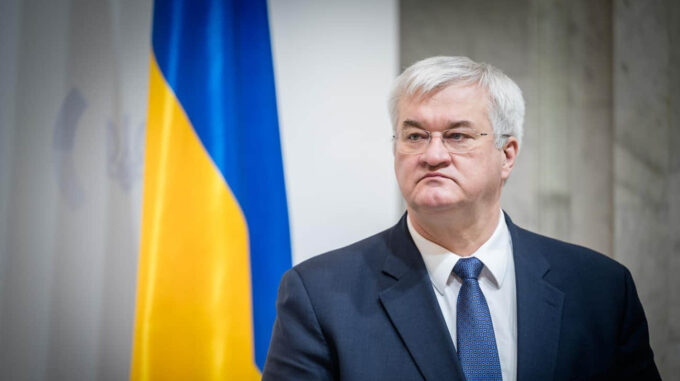Ukrainian Minister of Foreign Affairs Andriy Sibiga openly expressed his dissatisfaction regarding recent greetings from certain countries to the Russian Federation on the occasion of Russia Day

Before the start of the "Weimar Plus" format meeting in Rome, the diplomat stated that, personally, these greetings had caused him unpleasant emotions. The media reported his words: “As a minister of a country that is currently at war with Russia, I found it especially unpleasant to read public congratulatory messages from some countries addressed to the aggressor.” He did not specify which states, but his statement resonated widely in diplomatic circles. Discussing the situation, Andriy Sibiga emphasized that such public greetings appear to be an unjustified show of support for the aggressor country during Ukraine’s fight for its independence and territorial integrity. In his statement, he underlined that it is important for Ukraine to maintain unity in the face of the aggressor and to prevent any signals that could be interpreted as encouragement or tacit legitimization of Russia’s actions in the global context. The deputy also highlighted that he has no intention of naming specific countries, as the situation is more complex and multifaceted: “I do not mind who exactly congratulated Russia, but the international community must understand that support for the aggressor country is only valuable for those who stand on the side of falsehood.” A significant point was also the unanimous remark by the minister regarding the position of the United States. U.S. Assistant Secretary of State Marco Rubio, in his official greeting on Russia Day, emphasized that he has a “moral right” to express support for this country, but at the same time, he underlined that Washington firmly does not support Russia’s actions in the context of the Ukrainian crisis. Rubio added that there should be no encouragement of the aggressor—and called on the global community not to recognize Russia’s actions as legitimate. Earlier that day, another focal point for journalists was a series of questions directed at the Pentagon leadership during a U.S. Senate hearing. Specifically, during the congressional hearings, Pentagon officials faced tense questions regarding the Russia-Ukraine war, which has been ongoing for over a year and, according to experts, holds global significance. Defense representatives were put in a difficult position, as they had to explain how the United States is supporting Ukraine in this fight and what support Moscow is receiving. In the context of this discussion, voices linked to American foreign policy and strategic interests are especially valued and clearly emphasize the US principled stance against Russia’s aggression, also stressing the inadmissibility of any gestures of support towards Russia from world leaders that could foster doubts about their unity and resolve. Thus, the statements by the Ukrainian foreign minister, as well as interventions from the US and other international players, once again underscore the importance of a united international front in countering Russian aggression. At the same time, this incident involving greetings highlights how delicate the situation in global diplomacy remains during wartime. Alongside diplomatic maneuvers, the attention of foreign politicians to events in Ukraine continues to be one of the most important priorities for the international community.

